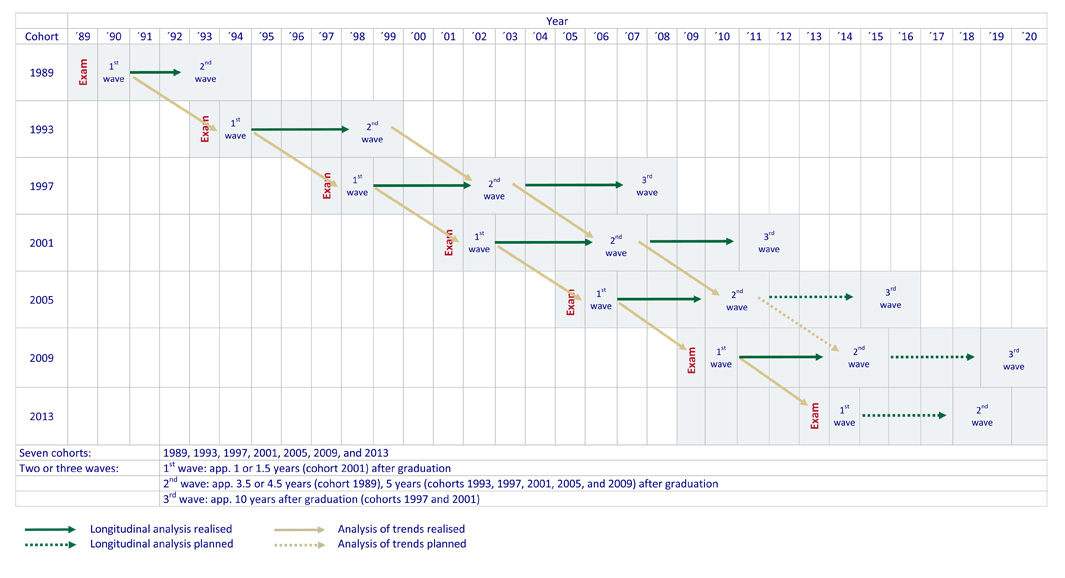Graduate surveys have a long-standing tradition at the DZHW. We started the first surveys of de-registered students as early as 1974, including both higher education graduates and students who had discontinued their studies or moved to another higher education institution (HEI).
We have carried out graduate surveys in the true sense since 1989. Since then, every fourth examination cohort is surveyed several times. This cycle enables us to successively set up time series. Because we carry out comprehensive surveys throughout Germany, questions on educational careers, study quality, transition to professional careers and on-going career progress within each cohort can be analysed with finely differentiated subject-specific data. Thanks to the large number of cohorts surveyed so far, inter-cohort comparisons could also be carried out.
In the first examination cohorts, two survey waves took place (one to one-and-a-half years and five years after completing their degrees), while since the 1997 examination cohort, a third survey approx. ten years after their graduation is carried out. Long-term studies of this kind are particularly useful because they can adequately register career integration processes that may take far longer than a period of five years, due to taking doctorates, supplementary and second degrees, periods spent concentrating on the family and further training courses.

(Click on the graph to enlarge)
Topics covered in all surveys include educational careers and the evaluation of study conditions, the higher education qualifications gained and career demands, as well as the transition to a career and issues of professional integration or allocation and development. Issues that have always had an important place in the surveys also include changes and modernisation in the world of work and their implications for qualification demands, moving into a profession and women’s career opportunities.
In addition to these permanent key points the panel studies also focus on graduates' involvement in further education and training, entrepreneurship, and careers of doctoral candidates and doctorate holders within and outside the academic system, as well as issues relating to reconciling work and family demands. In this way the surveys provide a great deal of information for the interested public as well as connecting links to various research projects.


